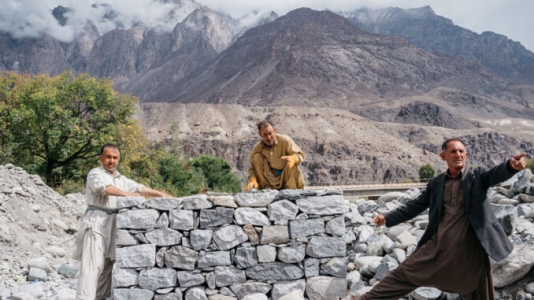2020 World Habitat Awards Gold Award to AKRSP - Indigenous Knowledge and Technology for Safer Homes 2021-12-22
The 2020 World Habitat Awards, an event that recognizes and highlights innovative housing ideas, projects, and programs that contribute to the improvement of the living conditions of people around the world, was celebrated virtually on October 12, 2021. The awards are organized by World Habitat, a nonprofit organization that works internationally to promote housing solutions in partnership with UN-HABITAT. Since its first edition in 1986, over 250 projects have been identified and celebrated around the world. This year, the gold award winners were the Aga Khan Agency for Habitat (AKAH), in Pakistan, and the City of Newcastle, in the United Kingdom. In addition to international recognition, both projects received an award worth £10,000 (approximately US$13,500)
The northern region of Pakistan is a mountainous area subject to earthquakes, floods, and other natural disasters, in addition to being the homeland of one of the most disadvantaged and isolated populations in the country. The lack of resources and the isolation of these communities make it difficult to respond to such disasters.
Through an approach that integrates indigenous knowledge with new technologies, the Aga Khan Agency for Habitat (AKAH) allows the community itself to play a leading role in disaster risk management and in community housing planning. Using local knowledge and data generated through GIS (geographic information system), residents map the risks, taking vulnerabilities into account, and define residential and commercial zones. Following a full evaluation, the community develops and implements a disaster management plan. In this way, residents can take prior actions and prevent damages, for example by: resettling families who live in high-risk areas; building more resilient housing and retaining walls to prevent landslides or canals to divert water currents; and installing warning systems. In addition, community volunteers are trained in disaster response, directing, for example, the evacuation of houses and identifying safe, temporary shelters.
One of the volunteers trained by AKAH is Amanullah Khan, 58, a teacher, farmer, and local guide in Gulmit, in the Hunza district. Khan explains the importance of community training: “In the harsh regions where we live, both natural disasters and those caused by man are extremely common. And because it is such a distant and isolated district, the community plays a leading role as the first responder in cases of disasters… Thanks to training provided by AZAH, we, as volunteers know what to do before, during, and after disasters.”
Arab Khan, 73, retired, and a resident of the village of Sherqilla, says that, “during the floods in 2018, thanks to the warning system, the sirens gave [them] approximately 45 minutes to evacuate to the shelters… and avoid the risks of disasters and vulnerabilities.”
With more than 50,000 trained community volunteers, the project has already provided technical assistance to over 20,000 homes, built more than 4,000 shelters, and prepared over 280 community disaster management plans. They are present in close to 800 Pakistani villages.
AKAH wants to continue growing to foster and accompany more safe and sustainable housing projects in Pakistan and help communities incorporate disaster risk management systems into their different local processes.
- 1190 reads
 Ismaili.NET - Heritage F.I.E.L.D.
Ismaili.NET - Heritage F.I.E.L.D.